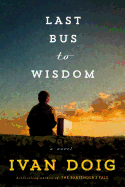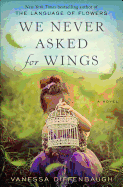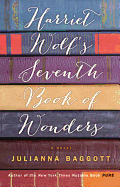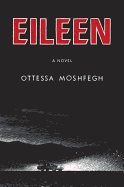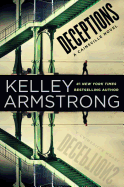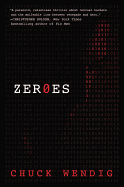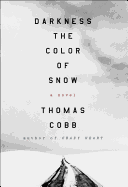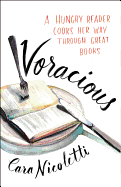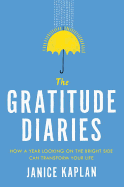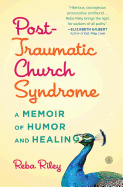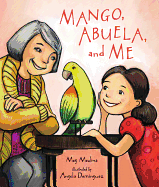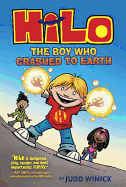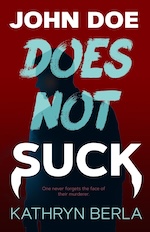 |
| photo: Mike Zajakowski |
Julia Keller was born and raised in Huntington, W.Va, the daughter of a college mathematics professor and a high school English teacher. As a journalist, she won the Pulitzer Prize in 2005 for a three-part narrative series on a deadly tornado that struck a small town in Illinois; she has also taught writing at several universities. She currently divides her time between Chicago and a small town in Ohio.
Keller's detective series starring prosecutor Bell Elkins is set in the fictional town of Acker's Gap, W.Va. The fourth novel in the series, Last Ragged Breath (Minotaur Books, August 25, 2015), refers to a real event, the 1972 Buffalo Creek Flood. Years after this tragedy, a fresh murder challenges Bell to consider the waning coal industry and burgeoning tourism investments. It's a complex case concerning the nature of memory and revenge.
You have established a successful series with a well-developed character. Your readers presumably have certain expectations from new installments. Does this make the writing process easier or harder?
Harder--but it ought to be harder, right? I mean, based on the response I get from readers, they know these characters well and they have certain expectations for them, much as our friends have expectations for us and tend to call us out when we veer away from our essential natures. People know Bell Elkins and Nick Fogelsong, and they have an idea about how they'd behave in particular situations. If Bell suddenly became meek and timid, I think I'd hear a lot of outrage from readers because that's not who she is. Her mistakes are always going to be mistakes of commission, not omission.
Your question reminds me of an aphorism about life choices that I've always liked: "Be careful when you choose your rut--because you're going to be in it for a long time!" It's the same with creating a series: Be careful when you dream up your characters and their peccadilloes, because you'll be living with them for a long time--if you are fortunate, that is, and if your series strikes the fancy of enough readers.
In Last Ragged Breath, Acker's Gap is described as a "beautiful, beleaguered patch of West Virginia." Could these novels have been set anywhere else?
Absolutely not! I've always said that my home state of West Virginia is the most singular state in the country, because it combines stunning natural beauty with so many intractable social problems. Many states are beautiful, and many states have social and economic woes--but only West Virginia combines beauty and sorrow in just this particular and poignant way.
I sometimes gnash my teeth when people mistake West Virginia for "western Virginia" (believe it or not, this is a common error) or lump together all novels set anywhere outside New York or Chicago or Los Angeles. Every place has a specific character and texture--just as every person does. There may be superficial similarities, but the deep essence of a region--its history, the stamp it leaves on those who live there--is unique. One of my favorite lines in Last Ragged Breath comes when Nick Fogelsong contemplates his life in Acker's Gap: "To walk each day on ground that had given rise to you" is, he decides, pretty darn cool. And so it is.
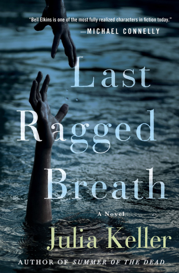 Did researching the Buffalo Creek Flood take you back to your career in journalism? Was that a comfort or a chore?
Did researching the Buffalo Creek Flood take you back to your career in journalism? Was that a comfort or a chore?
You know, journalism used to be the automatic career choice for aspiring writers--everyone from Ernest Hemingway and Katharine Anne Porter to Thornton Wilder and Willa Cather. It enables you to have experiences that you'd otherwise never have. It certainly did for me. I got to go to murder scenes, fly a plane, tour a coal mine--and so much more. That's not as true today as it used to be--a lot of fledgling novelists end up in creative writing programs in grad schools instead of newsrooms--but for me, journalism was a great education, and I constantly use what I learned there in my fiction.
Many of the cases in the Bell Elkins series have roots in stories I covered. The death of a young boy in A Killing in the Hills is based on a crime story I wrote about. The opening scene in Bitter River--a car being pulled out of a river, with a body inside--is based on a similar moment I had as a reporter at a riverbank. And the retired coal miner in Summer of the Dead whose daughter rigs up a coal mine in the basement so that he'll feel at home is also based on a real-life situation I came across as a journalist. The coal mine scene in Last Ragged Breath is informed by my own very harrowing journey down into a working coal mine, while researching a story on coal production.
The series for which I won the Pulitzer Prize is set in a small town about the size of Acker's Gap. Hanging out in that town was a great way to sort of road-test my ideas about small towns in which, as the song says, "everybody knows your name." That can be wonderful--or it can be stifling.
I like the way you phrased the question--"comfort or chore"--because it's really a bit of both. I have the comfort of knowing that I'm writing about something I've seen and felt, but it's a chore in the sense that, as a reporter, you are often coming into people's lives in the wake of tragedy. I grew up hearing stories about the Buffalo Creek tragedy--every West Virginian does--and to return to a time of such heartbreak and loss is difficult, even if necessary.
At the center of the story in Last Ragged Breath is a child survivor of the flood, now a grown man accused of murder. Does Royce Dillard have a historical counterpart, or is he entirely your creation?
Royce Dillard is entirely fictional, but there were certainly flesh-and-blood children who survived the Buffalo Creek flood. Some lost one or both parents. As far as I know, none of these children has ever faced a murder charge as an adult--thank goodness!--but the psychological scars left by the flood are well-documented. Royce's emotional issues are very loosely based on published accounts of the travails of real-life survivors. So he is fictional, yes--but he represents many people who suffered then, and who suffer still.
You told NPR's Crime in the City series that you read most literary fiction as crime fiction. You cited Hamlet, To Kill a Mockingbird and the Oedipus stories. Is there a distinction between "genre" crime fiction and these classics? Where do your books fall?
I try to write books that will be accessible and entertaining, yes, but that also give readers something extra--perhaps a way to reflect upon life's deepest questions, and a way to think about the catastrophes that can befall those who have done nothing to deserve them. To me, any novel--whether it's categorized as "crime fiction" or "literary fiction" or whatever--is a window into how another human being works out her or his destiny.
I fight against the idea of genre because it's so limiting. It's an artificial distinction. It puts novels into boxes and closes the lid--and novels need to breathe! Dorothy Parker once divided her bookcases into two categories: Good and Crap. That's the only division that really matters.
Will my books turn out to be classics--that is, novels that are read by multiple generations? I'd certainly like to think so.
Last Ragged Breath pulls together strings from past Bell Elkins novels. It appears that the series will continue. What's next? Do you already have the next book underway?
Oh, yes, indeed. I'm well embarked upon the fifth book in the series. It's set in an Alzheimer's care facility near Acker's Gap. I am intrigued by questions about memory, and by an awareness of how central our memories are to our very essence. When memory begins to fail, what happens to that core self? The basic plot in The Disremembering--that's the tentative title--is about a series of mysterious deaths at the facility, but the deeper theme is this issue of memory. As more and more people live longer and longer, our culture will be struggling with the problems of Alzheimer's and its long reach. It is a great springboard for a novel--and a touchstone for contemplation about how the past constantly interacts with the present, in ways both good and bad. --Julia Jenkins, librarian and blogger at pagesofjulia
Julia Keller: Memory and Place
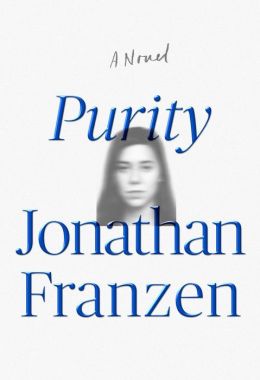




 Did researching the Buffalo Creek Flood take you back to your career in journalism? Was that a comfort or a chore?
Did researching the Buffalo Creek Flood take you back to your career in journalism? Was that a comfort or a chore? 